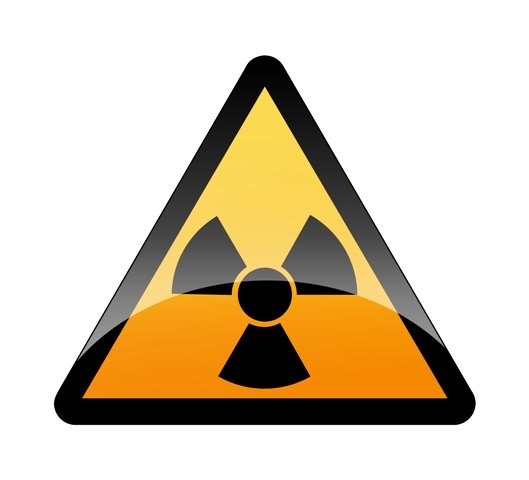
The role of discriminatory nuclear policies on the strategic stability of South Asia with regard to global nuclear policies came under discussion at a conference titled ‘contours of emerging international nuclear order: challenges and options’ on Wednesday.
The conference, organised by the Centre for International Strategic Studies (CISS), included former Chairman Joint Chiefs of Staff Committee Gen. (retd) Ehsanul Haq as the key note speaker. Prominent speakers included nuclear strategic affairs expert Dr Bruno Tertais and Russian nuclear expert Andre Shabalin.
Gen. Haq said the global and regional security environment became more complex after the cold war, contrary to the general optimism of many. He was of the view that a surge in globalisation and increased competition over energy resources are the new elements of an emerging global security order. “Pakistan deserves its rightful place in the emerging global nuclear order based on internationally recognised record of safety, security and non proliferation.
Regarding the challenges of the global nuclear order with regards to North Korea and Iran and the double standards in nuclear non-proliferation, Tertais proposed additional protocols, transparency, and adherence to article six of the nuclear Non-Proliferation Treaty (NPT) to strengthen the global nuclear order.
Shabalin, who was member of the team that negotiated the new Start treaty with the Obama administration in 2010, provided a Russian perspective on strategic stability and disarmament. He discussed the implications of the strategic missile defense program of the United States and Russia’s retaliatory measures along with factors affecting strategic deterrence.
Strategic Studies Institute Islamabad Director General Dr Shireen Mazari argued that NPT and the inherent discrimination within has not been the source of stability in global and regional security. Regarding the four export control cartels, Mazari was of the view that these export control cartels have no legal binding.
CISS Executive Director Ali Sarwar Naqvi said an emerging global nuclear order will have many opportunities for Pakistan.
Published in The Express Tribune, June 21st, 2013.
COMMENTS (5)
Comments are moderated and generally will be posted if they are on-topic and not abusive.
For more information, please see our Comments FAQ
1730806656-0/BeFunky-collage-(23)1730806656-0-405x300.webp)





1730806490-0/New-Project-(2)1730806490-0-270x192.webp)
1730802981-0/Untitled-design-(53)1730802981-0-270x192.webp)

1730799445-0/Untitled-design-(52)1730799445-0-270x192.webp)
1730800230-0/Copy-of-Untitled-(5)1730800230-0-270x192.webp)




1730706072-0/Copy-of-Untitled-(2)1730706072-0-270x192.webp)
Pakistan deserves her rightful place in up comming new nuclear world order . NPT is discreminatory in nature . SALT and START treaties are not applicable on Pakistan China and India . Let these nation to posesses these WMD . Let these nations invest more than 25% of their GDP for the security of these weapons by keeping a huge armed forces . The result of nuke race among these three nations will be quite visible in next ten years . This will lead them to internal disturbances as it has already started in Pakistan . At present India and China are able to maintain her sovereignity but the sovereignity and integrity of Pakistan is on stake . Chacha China can't help her and big brorher India can't exploit the situation to solve the Kashmir issue despite of having nuclear arms . It means the economic condition of the region will remain the same and all of them will look towards west for their survival and economic growth . Hence who deserves to decide the placement POLICY in nuclear world order should be clear to all .
Pakistan deserves her rightful place in up comming new nuclear world order . NPT is discreminatory in nature . SALT and START treaties are not applicable on Pakistan China and India . Let these nation to posesses these WMD . Let these nations invest more than 25% of their GDP for the security of these weapons by keeping a huge armed forces . The result of nuke race among these three nation will be quite visible in next ten years . This will lead them to internal disturbances as it has already started in Pakistan . At present India and China are able to maintain her sovereignity but the sovereignity and integrity of Pakistan is on stake . Chacha China can't help her and big brorher India can't exploit the situation despite of having nuclear arms . It means the economic condition of the region will remain the same and all of them will look towards west for their survival and economic growth . And hence who deserves to decide the placement in nuclear world order should be clear to all .
NPT has been inherently discrimainatory. Both India and Pakistan need to form a nuclear restraint regime. Sadly we have been pursuing a qualitative arms race and need to stop. We need to stop calling China the reason for our nuclear prog as it breeds insecurity for Pakistan.
proposition by Tertais for additional protocols, transparency, and adherence to article six of the nuclear Non-Proliferation Treaty (NPT) to strengthen the global nuclear order is the need of time instead of favouring one over the other.. instead they need to reorient their policies which is persuing the south asian region more to induldge in the arms race acquisition...
. Pakistan has constructed a robust case for civilian nuclear technology transfer from western countries for its energy needs but western countries have been dragging their feet. If India, the primary proliferators, could be given such an allowance by the NSG, why Pakistan be destitute from it. We must keep in mind that by Indo-US nuclear deal US had not only violated the NPT, but had also violated the Hyde Act 2006. NSG members should push hard to guarantee that the stability of the region will not be Jiggled.